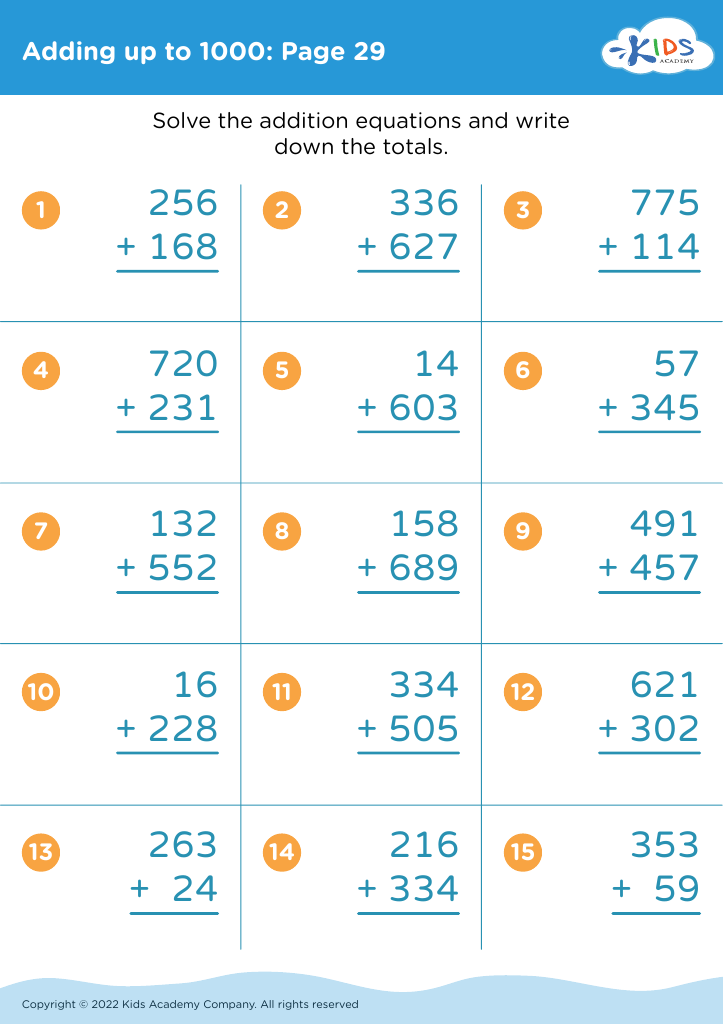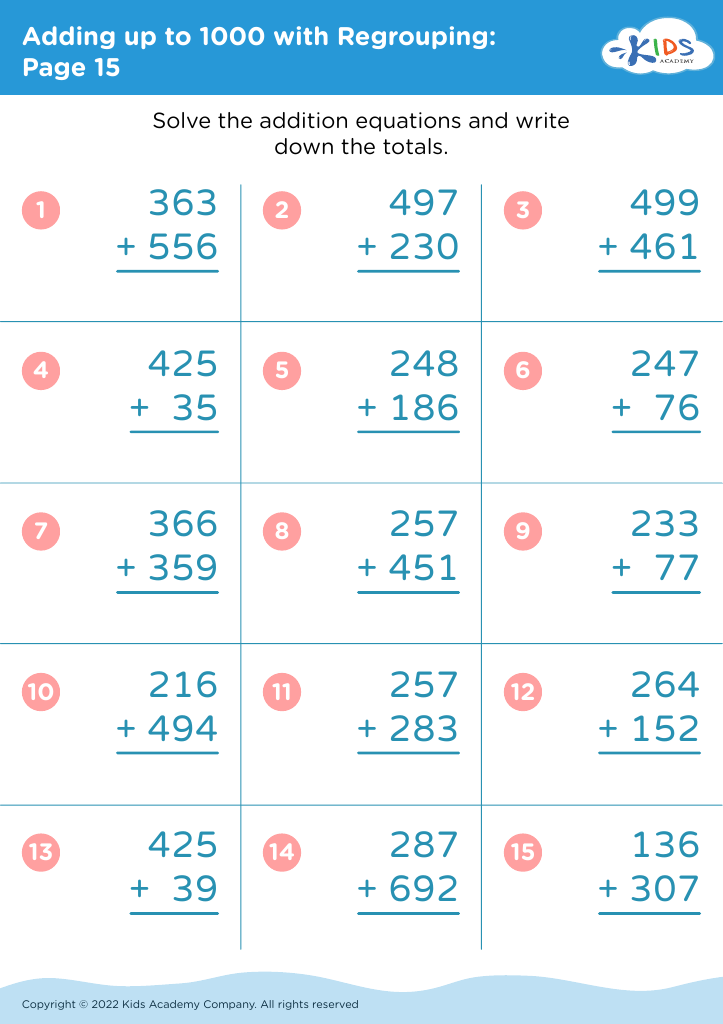Time conversion skills Addition & Subtraction Worksheets
3 filtered results
-
From - To
Enhance your child’s understanding of time with our "Time Conversion Skills Addition & Subtraction Worksheets"! These engaging worksheets are designed to help young learners master essential time concepts through hands-on addition and subtraction exercises. Children will practice converting between hours and minutes, enriching their mathematical skills while gaining a solid foundation in time management. Ideal for early grade learners, these interactive resources encourage independent problem-solving and boost confidence in math. Whether in the classroom or at home, our worksheets make learning fun and effective. Dive into the world of time conversions and watch your child excel in both math and time-related skills!
Time conversion skills, as well as addition and subtraction, are fundamental mathematical abilities essential for students’ daily lives. Parents and teachers should prioritize these skills for several reasons.
Firstly, understanding time is crucial for effective time management. Children who can convert between different units of time—such as minutes to hours—can plan their activities, schedules, and responsibilities better. This ability promotes punctuality and accountability.
Secondly, addition and subtraction skills are foundational to many higher-level mathematical concepts. Mastering these operations with time prepares students for more complex calculations in fields like physics and finance in the future.
Moreover, incorporating time-related problems encourages critical thinking. For instance, solving for how long a movie lasts or how much time remains until an event instills practical problem-solving skills applicable in everyday scenarios.
Finally, teaching these skills helps foster independence. Children who effectively understand time can navigate school schedules, extracurricular activities, and household responsibilities with greater autonomy. Consequently, parents and teachers play a crucial role in helping students develop these skills, ultimately setting them up for success in academic and real-life situations. Prioritizing time conversion, addition, and subtraction skills lays a solid foundation for comprehensive learning and personal growth.



















